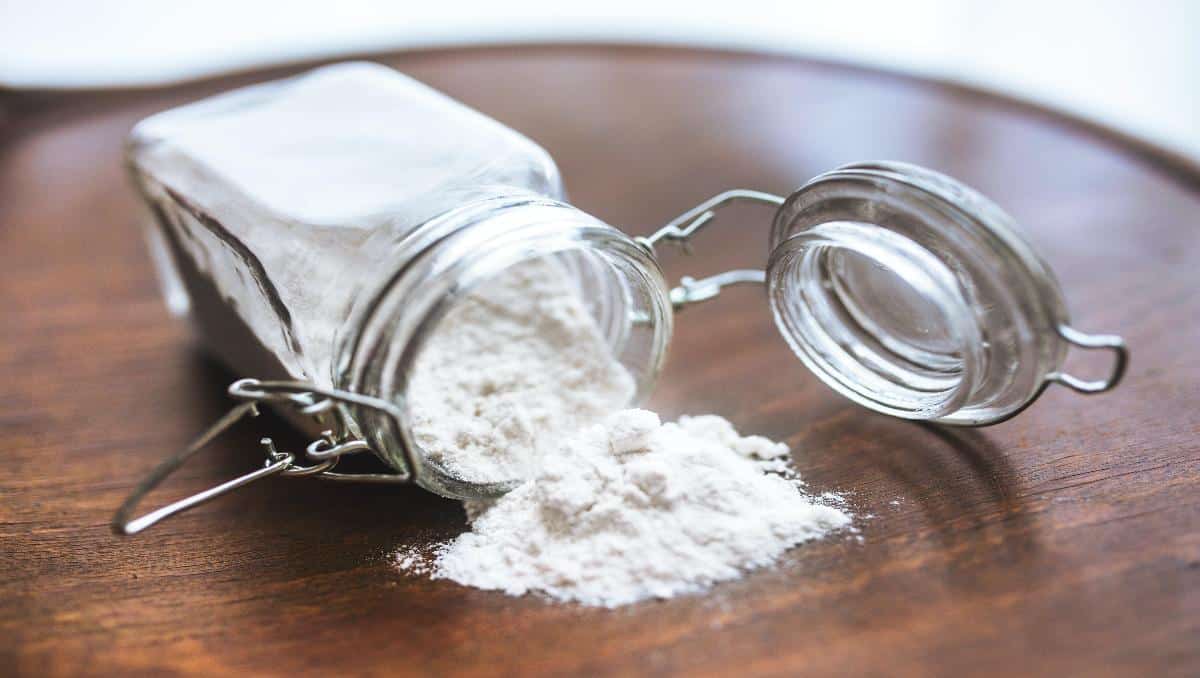Alum powder is commonly found in culinary, medical, and industrial uses. However, its safety for ingestion remains a topic of debate among experts. Have you ever wondered what would happen if you swallowed alum powder?
Alum powder is generally safe when used as directed, but swallowing it can cause stomach upset, nausea, vomiting, and diarrhea. If you have swallowed alum powder, it is important to seek medical attention as soon as possible.
This article will take you on a journey into the effects of ingesting alum powder. In case of accidental ingestion, there are steps you can take to mitigate potential harm. We will also debunk myths surrounding alum poisoning and provide practical prevention tips.
Understanding Alum Powder
When you swallow alum powder, it can harm your body due to its chemical makeup and types. Alum powder typically comprises compounds such as potassium aluminum sulfate or ammonium aluminum sulfate.
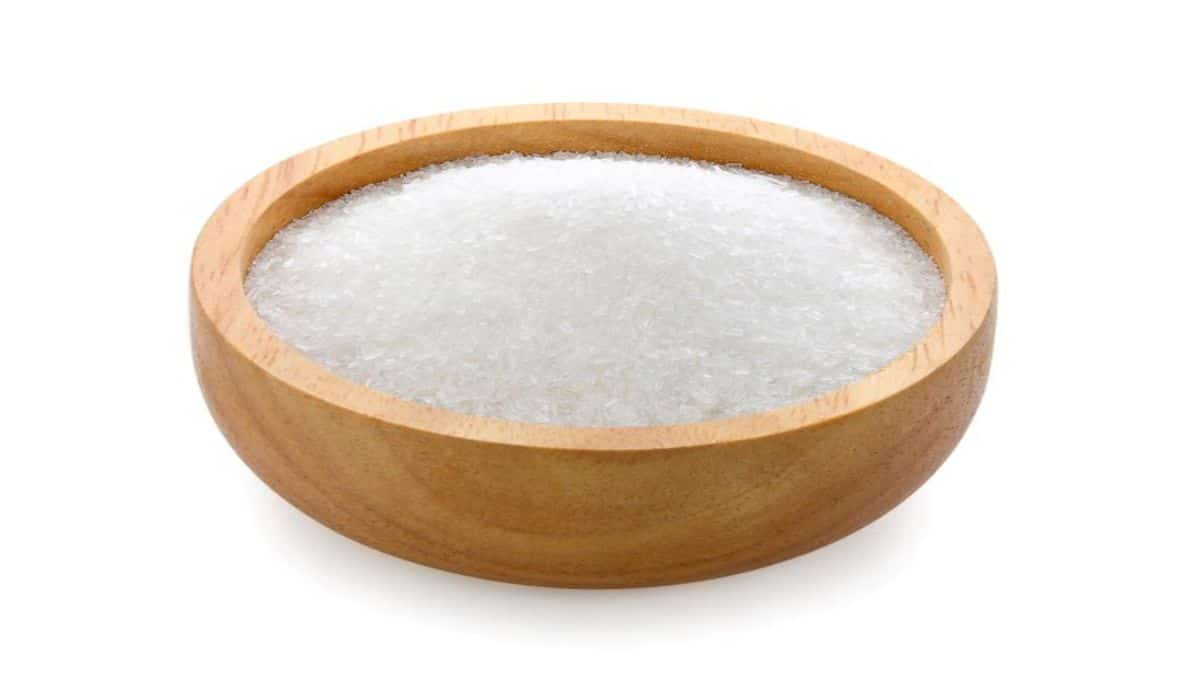
Chemical Makeup and Types
Contrary to popular belief, alum powder consists of various chemical compounds in different types.
Alum is a broad word for a group of hydrated double salts containing aluminum sulfate and another alkaline sulfate, such as potassium or ammonium sulfate. The chemical formulae and crystal structures of these several forms of alum differentiate them.
For instance, potassium alum has the formula KAl(SO4)2·12H2O, while ammonium alum has the formula (NH4)Al(SO4)2·12H2O. Alum powder is widely used in cooking, pickling, and even medicine for reasons such as calming canker sores and decreasing bleeding from tiny injuries.
When handling alum powder, it is essential to follow safety precautions such as avoiding ingestion and keeping it out of reach from children due to potential toxicity risks.
What Are Its Common Uses?
| Product | Culinary Uses | Medical Uses | Industrial Uses |
|---|---|---|---|
| Alum powder | Food preservation, pickling | Canker sore treatment, mouthwash, antiseptic, skincare (skin tightening) | Water purification, dyeing |
| Alum crystals | Crystal growing in food decoration | Used in certain medical procedures | Used in water treatment processes |
| Alum block | Used in baking to crisp pickles and vegetables | Canker sore treatment, hemorrhoid treatment, antiseptic | Used in the paper industry |
Alum powder has various common uses across different applications. Some of the common uses include culinary, medical, and industrial applications.
Culinary Applications
Alum powder can be used in various culinary applications to enhance flavors and textures. Here are four ways it can be utilized:
1. Pickling: Alum is commonly used as a preservation technique in pickling recipes, as it helps maintain the crispness of fruits and vegetables.
2. Baking: Adding a pinch of alum powder to certain baked goods, like pretzels or bagels, can give them a distinct chewy texture.
3. Cheese making: Alum is sometimes used as a coagulant in cheese production, helping to create a smoother and firmer cheese.
4. Flavor enhancer: In some traditional dishes, alum powder is added for its unique tangy taste, adding depth and complexity to the overall flavor profile.
While alum powder has its uses in culinary settings, it’s important to note that there are alternative ingredients available that can achieve similar results without potential health concerns associated with ingesting alum.
Medical and Health-Related Uses
In medical and health-related uses, there are myriad benefits of alum powder that can work wonders for the body and mind. Its antibacterial and astringent characteristics, as well as its longer shelf-life, have made it popular in traditional medicine for ages.
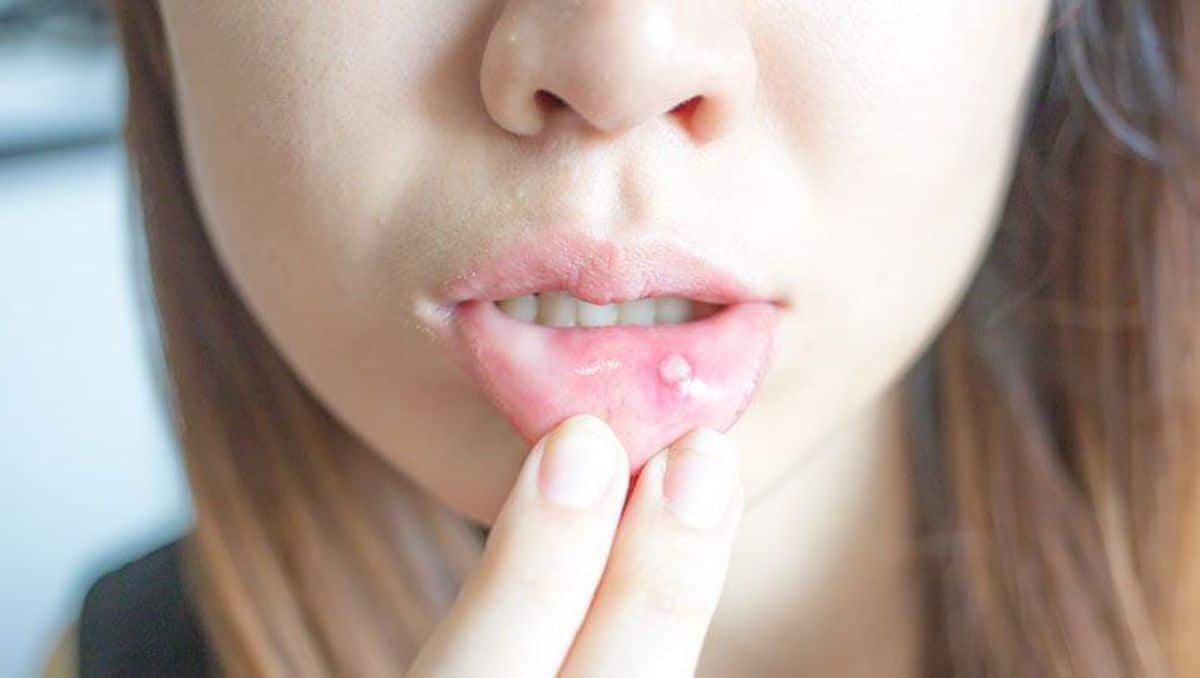
Alum powder has shown potential in treating canker sores, hemorrhoids, and vaginal infections. However, it is essential to note that excessive use or ingestion of alum powder may lead to side effects such as nausea and diarrhea.
Proper dosage and administration should be followed based on research and studies on this topic.
Industrial and Household Uses
Alum powder is not only used in cooking for its culinary benefits but also for extensive use in industrial applications such as water treatment and paper manufacturing.
However, there are hazards linked with taking alum powder, therefore measures should be used.
Is Alum Powder Safe for Ingestion?
Using alum powder for ingestion may pose potential health risks you should be aware of. The FDA hasn’t approved alum powder for internal use, and it isn’t considered safe for consumption according to health guidelines. Ingesting alum powder can lead to various adverse effects on your health, so it is essential to exercise caution and avoid using it internally.
Potential Health Risks of Using Alum
Swallowing alum powder can lead to some seriously alarming health risks.
A study in the journal Toxicology found that alum can cause neurotoxicity and neuro-inflammation in rats. The study exposed rats to different doses of alum powder for 28 days and found that the rats exposed to the highest doses had significant damage to the hippocampus and cerebral cortex, two areas of the brain that are important for memory and learning.
Another research discovered that alum powder may induce cognitive impairment in rats. The study also found that the rats exposed to alum powder had decreased neurotransmitters such as dopamine and acetylcholine, essential for cognitive function.
The most recent data from 2017, after a study on mice undertaken by Swiss experts, demonstrates that extended exposure to aluminum salt may cause tumors. Aluminum accumulates in the brain, and this buildup is one of the causes of Alzheimer’s disease.
These studies suggest that long-term exposure to alum powder can harm the brain and nervous system. However, more research is needed to confirm these findings and to determine the safe levels of human exposure to alum powder.
FDA and Health Guidelines
The FDA and health guidelines provide essential information on the potential risks of ingesting alum powder. According to FDA regulations, alum is generally considered safe when used in good manufacturing practices. However, swallowing significant amounts of alum can affect your health.
In severe cases of poisoning, it can even result in kidney damage or other serious complications. If you accidentally swallow alum powder, it is recommended to seek medical attention immediately.
While waiting for professional help, you can rinse your mouth with water to protect your stomach lining from further irritation. Always handle alum powder with caution and follow safety precautions to minimize potential harm.
What Happens if You Swallow Alum Powder?
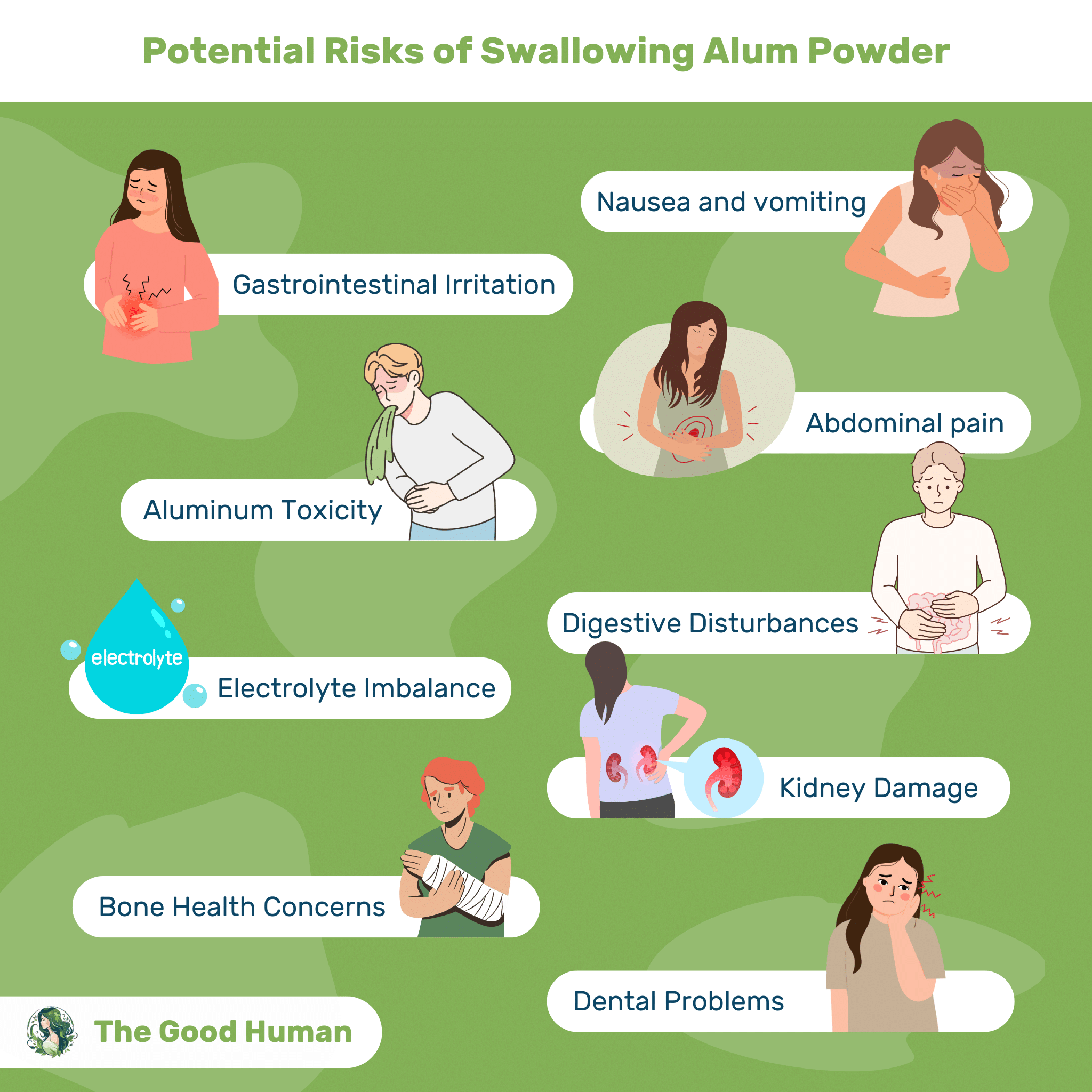
When you consume alum powder, you may have discomfort and a burning feeling in your mouth, throat, and gastrointestinal system. Nausea, vomiting, and diarrhea may result.
In the short term, ingesting alum powder can cause dehydration due to excessive fluid loss from vomiting and diarrhea. It may also cause electrolyte imbalances and stomach cramps.
Alum powder is considered a toxic chemical if ingested in large amounts, as it can interfere with normal bodily functions and lead to serious health issues.
Immediate Effects of Ingesting Alum Powder
Whatever you do, do not swallow alum powder because it will feel like an atomic explosion in your stomach! The immediate effects of ingesting alum powder can be severe. Short-term implications may include intense pain and discomfort in the digestive system, leading to nausea and vomiting.

Regarding the digestive system, alum powder can cause irritation and inflammation of the stomach lining, resulting in abdominal pain and gastrointestinal disturbances. It may lead to respiratory effects such as coughing or difficulty breathing due to irritation of the airways. Allergic reactions are also possible, with symptoms like itching, hives, or swelling.
If you experience any of these symptoms after ingesting alum powder, seeking medical attention is crucial. Treatment options may include supportive care to alleviate symptoms and address any complications that arise from ingestion. Remember to consult a healthcare professional for proper assessment and guidance if you have concerns about alum powder ingestion.
Long-term Health Consequences
While short-term effects may be mild and manageable, it is crucial to understand the potential risks that can arise from prolonged or repeated ingestion.
Over time, regularly consuming alum powder can lead to serious health issues such as neurological disorders like Alzheimer’s disease and Parkinson’s disease. Additionally, excessive intake of aluminum has been linked to bone diseases and kidney damage.
To prevent these long-term effects, it is essential to avoid ingesting alum powder altogether. If accidental ingestion does occur, immediate medical attention should be sought. First aid measures may include rinsing the mouth with water and seeking professional guidance.
Here’s a table summarizing the information on alum powder toxicity:
| Toxicity Type | Description |
|---|---|
| Acute Toxicity | Symptoms may include nausea, vomiting, abdominal pain, and dehydration. |
| Chronic Toxicity | Long-term exposure to alum powder can lead to chronic toxicity, causing significant harm to the kidneys and gastrointestinal system. |
| Lethal Dose | Accidental ingestion of alum powder may have rare lethal consequences. The required amount for fatality varies based on factors like age and overall health. Prompt medical attention is crucial in case of poisoning. |
What to Do If You Accidentally Swallow Alum Powder
If you accidentally swallow alum powder, it is essential to be aware of the symptoms of alum poisoning. In such circumstances, offer quick first aid by washing your mouth with water and consuming lots of fluids to dilute the alum. However, if the symptoms persist or worsen, it is crucial to seek medical attention immediately.
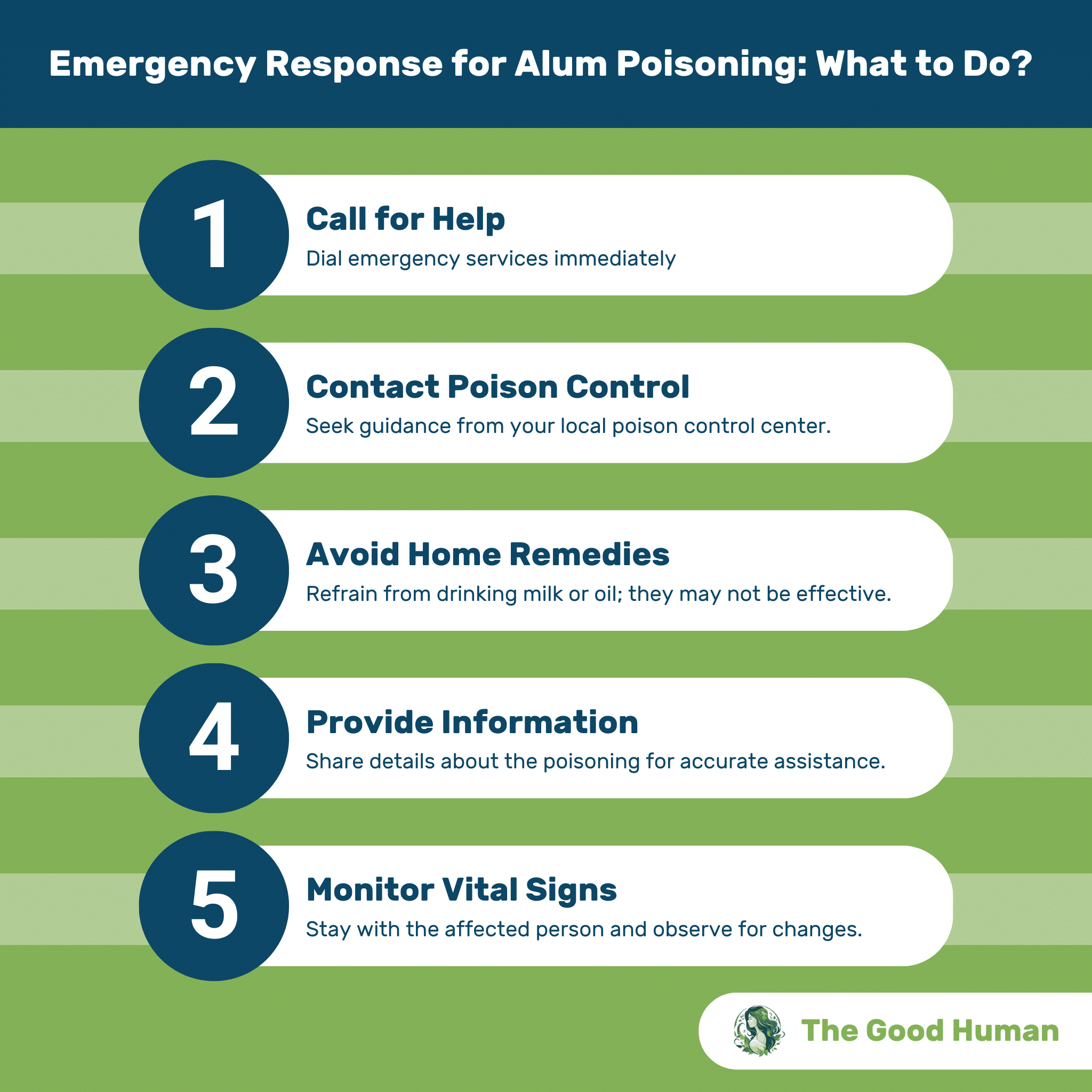
In case of alum poisoning, the doctor may administer treatments like gastric lavage or activated charcoal to remove the remaining alum from your body.
It is important to note that some individuals may have an allergic reaction to alum powder. If you experience symptoms such as difficulty breathing, swelling of the face or throat, or hives after ingestion, seek emergency medical care right away.
First Aid For Alum Poisoning
In the event of alum poisoning, immediate medical attention is crucial to ensure proper treatment and minimize potential harm. First aid treatment for alum poisoning focuses on managing symptoms and taking emergency measures to prevent further complications.
If you or someone you know has swallowed alum powder, it is important to rinse the mouth with water to remove any remaining powder. Don’t induce vomiting. This can cause more damage.
Common misconceptions include using home remedies like milk or oil, which are not effective in treating alum poisoning.
When to Seek Medical Attention
If you suspect that someone has ingested alum powder and is experiencing symptoms of poisoning, it is crucial to seek immediate medical attention. Alum poisoning can potentially lead to serious complications if not treated promptly.
To help you understand when it is necessary to seek medical help, here are the signs of alum poisoning and the recommended emergency response:
| Signs of Alum Poisoning | Emergency Response |
|---|---|
| Abdominal pain | Call 911 |
| Nausea and vomiting | Contact poison control center |
| Difficulty breathing | Administer CPR if trained |
It is important to note that these are just a few examples, and there may be other symptoms associated with alum ingestion. Remember, your health and well-being are paramount, so don’t hesitate to reach out for assistance when needed.
Myths vs. Facts
Here’s a table comparing myths versus facts related to alum powder poisoning:
| Myths | Facts and Health Advisories |
|---|---|
| Myth: Alum powder is entirely safe for consumption. | Fact: Alum powder can pose health risks, including acute and chronic toxicity. It is not meant for ingestion and should be handled with caution. |
| Myth: Drinking milk or oil can neutralize alum poisoning. | Fact: Home remedies like milk or oil may not treat alum poisoning effectively. Seek immediate medical attention instead. |
| Myth: Alum poisoning has no immediate symptoms. | Fact: Acute toxicity symptoms can include nausea, vomiting, abdominal pain, and dehydration. |
| Myth: Alum toxicity is only a short-term concern. | Fact: Prolonged exposure to alum can lead to chronic toxicity, causing harm to the kidneys and gastrointestinal system over time. |
| Myth: Any amount of alum powder ingestion is harmless. | Fact: Even small amounts of alum powder can lead to adverse effects, and the lethal dose is relatively high. |
| Myth: Alum powder has no impact on respiratory function. | Fact: Difficulty breathing can be a symptom of alum poisoning, and it warrants emergency response, including calling for medical assistance or administering CPR if trained. |
| Myth: Alum poisoning is a common occurrence. | Fact: Accidental alum poisoning is relatively rare, but it is essential to be aware of its potential dangers and seek professional help promptly when it occurs. |
To ensure safety precautions, it is important to avoid ingesting alum powder altogether. While it may be commonly used for pickling or as a food additive in small quantities, consuming it in larger amounts can lead to gastrointestinal issues.
It is best to take necessary precautions while handling this substance in the kitchen or other settings.
How To Prevent Alum Poisoning
To keep yourself safe and protect your health, it is crucial to implement preventive measures against the potential dangers of alum poisoning. One crucial step is always storing alum powder securely and out of reach from children or individuals who may accidentally consume it.
If someone ingests alum powder, knowing how to manage the symptoms and provide appropriate emergency response is essential. If you or someone you know swallows alum powder, immediately seek medical attention. Don’t induce vomiting unless advised by a healthcare professional.
Safety First: Understanding the Consequences of Swallowing Alum Powder
In conclusion, if you accidentally swallow alum powder, it is crucial to seek immediate medical attention. However, don’t panic! Medical professionals have the knowledge and tools to handle this situation effectively.
Prevention is vital in avoiding poisoning, so always take precautions when handling substances like alum powder.






